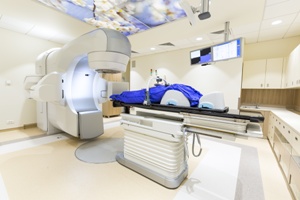 You consented to radiation treatment after discussing the benefits and risks with your doctor. Together, you decided that radiation to treat your cancer was worth the possible health risks. What you could not have accounted for—and should not have had to account for—was what would happen to you if you received the wrong radiation treatment.
You consented to radiation treatment after discussing the benefits and risks with your doctor. Together, you decided that radiation to treat your cancer was worth the possible health risks. What you could not have accounted for—and should not have had to account for—was what would happen to you if you received the wrong radiation treatment.
About a decade ago, The New York Times reported on the dangerous underreporting of radiation mistakes. Some of the problems may have been fixed by newer technologies, but other risks remain for cancer patients. If you or a loved one receives radiation cancer treatment, it is important to be aware of the potential health problems radiation causes patients, why radiation mistakes are underreported, and what to do if you have been harmed by treatment.
Health Dangers of Radiation Errors
Radiation mistakes can happen because of human error, machine error, or computer software errors. When a mistake happens, a patient may receive the wrong dose of radiation or radiation to the wrong part of the body, causing:
- Too much radiation. Radiation overdose can cause organ failure or death. Symptoms such as nausea, vomiting, diarrhea, headache, fever, fatigue, difficulty swallowing, burns, and peeling skin should be promptly reported to your doctor.
- Missed radiation. When radiation is delivered to the wrong part of the body, cancer remains untreated. Similarly, when the radiation strength is too low, cancer may not be treated effectively. In either of these situations, you are exposed to the risks of radiation, and you may experience the side effects of radiation, but you do not get the cancer-fighting benefits you expected when you consented to treatment.
An additional risk is that patients may lose trust in their medical providers and the safety of cancer treatment. They may be reluctant to go back and get the treatment that they need to save their lives from their current oncology and radiology team or even from another team of medical providers.
Why Radiation Mistakes Go Unreported
In 2001, the Radiation Oncology Safety Information System (ROSIS) was developed to gather information about radiation mistakes and near-misses so that the medical community could learn from them and prevent future radiation injuries. Today, ROSIS is known as Radiation Oncology Safety Education and Information System (ROSEIS). Some states and individual hospitals also have requirements for reporting radiation errors. However, many mistakes still go unreported because of:
- Embarrassment. Some hospitals and medical facilities have cultures that demand perfection. Doctors, nurses, and technicians are reluctant to report radiation errors to their colleagues, bosses, and patients because they are embarrassed and do not want to admit they made a mistake.
- Fear of professional discipline. In addition to being embarrassed, some people who commit radiation errors may worry about losing their jobs or being disciplined in another way by their employers.
- Confusion about how to report an error. Some medical providers may be unclear about the procedures for reporting a radiation mistake, and therefore fail to report the error at all.
For the safety of all cancer patients, these obstacles must be overcome so that doctors, nurses, and technicians can promptly report any potential radiation error to the patient, the medical facility, ROSEIS, and other relevant reporting agencies.
Talk to a Kentucky Radiation Overdose Lawyer
Cancer treatment mistakes can lead to a radiation overdose lawsuit or another medical malpractice case. These types of cases are often complicated, and they require expert witnesses, documentation from the radiation provider, and skilled legal arguments to be successful.
The experienced Kentucky radiation injury lawyers of Gray and White Law are here to help you with your case every step of the way. We encourage you to contact us directly to schedule a free, no-obligation consultation to learn more about your rights and to find out how we will fight for your fair recovery of damages for the radiation injury you suffered.
Related Links: